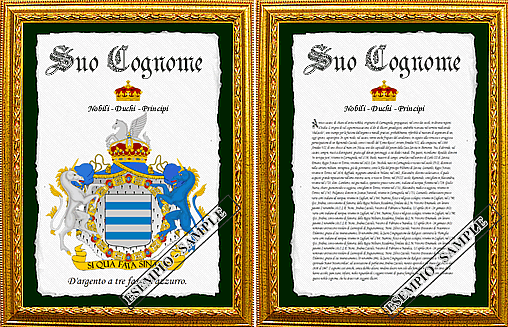Surnames most likely of origins derived from Arabic. Integrations provided by Stefano Ferrazzi Sciarabba has a main nucleus in the Palermo, Sciarrabba is typically Agrigentino, Sciarraba, unique, is probably a mistake of transcription of the previous, Charnel has major strains in the Foggian and In the Avellinese, Sciarappi, almost unique, is found only in Rome and in Viareggio (LU), all these surnames lend themselves to a difficult etymological interpretation and at least three are the hypotheses that one can derive from it: this ambiguity is due to a curious case of Homonym between terms of origins very different from each other. According to the first and, perhaps, most probable hypothesis (or at least the most accredited by scholars), these surnames should derive from the Arabic sarab, with the meaning of drink and, more specifically, even wine, most likely in reference to a nickname Attributed to a beone, to a crapulone; Just out of curiosity, I point out that the same term also derived the Italian words syrup and sherbet (the latter through Turkish pronunciation sorbet). A second hypothesis, however, derives these surnames not so much from Arabic, as from the French and precisely from the expression char à Bancs (literally translatable as a wagon with benches), with which once was indicated a particular type of carriage, used Originally in Switzerland and in the Franche-Comté: This expression typically French, in fact, has undergone several dialectal adaptations in our country (such as, for example, Sciarrabba, Sciarabá, Sciarabballo, Sciaraballe, Sciaraball, Saraban, etc.) and is Also joined the English language (anglicised in the form Charabanc). In several dialects, therefore, the term Sciarabba and its variants indicate either this particular type of carriage (sometimes even a more generic cart or Barroccio) or, figuratively, a particularly solid, robust woman (this meaning Especially for the Neapolitan Sciarabballo): In this way, then, the aforementioned surnames would derive either from names of trade attributed to the ancestor (probably Carters or wagon drivers) or nicknames due to their physical characteristics. The third and last hypothesis, finally, also indicates a foreign origin for these surnames, but here neither Arab nor French: it is, that is, of a Spanish origin, which recalls the Iberian word Jalapa, a plant that today we know by the name of Gialappa. First italianized in the form Scialappa or Sciarappa, the Gialappa is a typical American plant, known in Europe since the SEVENTEENTH century, whose roots are often used for the production of drugs: its name derives from the Mexican city of Jalapa or Xalapa, from which, in 1609, it was for the first time imported into our continent. In the southern dialects (mostly in the Neapolitan one) the term Sciarappa STA, thus, to indicate both the Gialappa plant and, in a metaphorical sense, a sweet drink (which, for example, may be the wine): From here, then, the last names in question could derive or By a trade name (like, among others, that of the pharmacist) or by a nickname probably attributed to a person devoted to drinking (and here there is a strange coincidence with the first hypothesis of meaning, that is to say of Arabic derivation). In conclusion, therefore, all these surnames (glaring examples of foreign influence on the Italian language) originate either from names of trades or from nicknames attributed to the parent. Additions provided by Aldo Piglia, Milan the expression char à bancs originated both the Italian word sciarabà or Sciarabàn, duly recorded by Zingarelli with the meaning of high biroccio with several seats, which was used as a public car in Noon, both the Milanese word Sciaraban, that the Cletto Arrighi records in his dictionary as a term in disuse which means Baroccio, Sciarabá. In fact I remember that my father still used this term in the Fifties, with the significance of any means of locomotion broken, then in a derogatory sense. Instead, the Gialappa (Ipomoea Purga, Family Convolvulaceae), in Milanese dialect had turned into Cilappa, term later extended to any purgant with drastic action.
Buy a heraldic document with your coat of arms
Verba Volant, Scripta Manent
